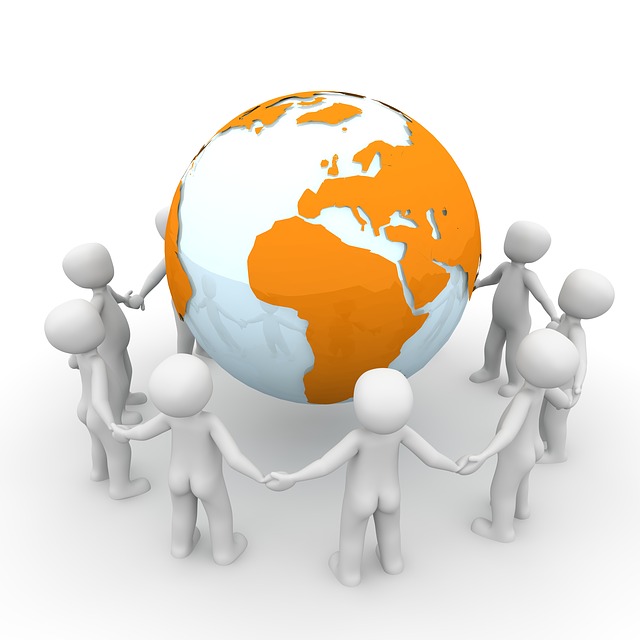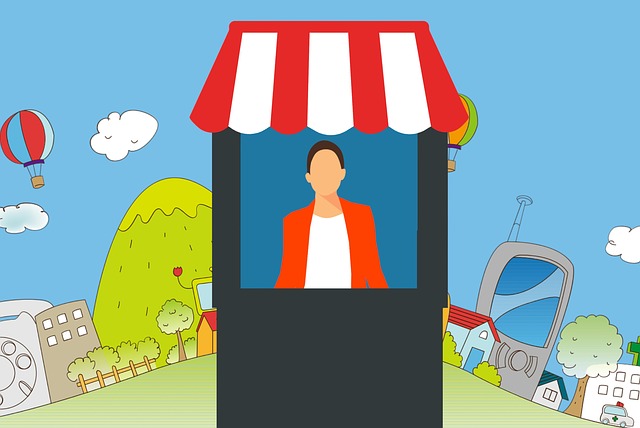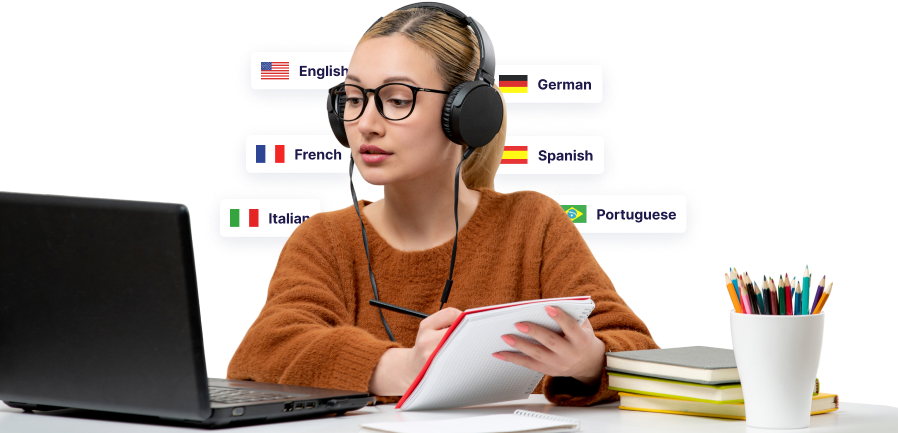Rapid Translate Team
Many businesses, developing brands, and startup companies aim to enter the international market. This means taking the proper steps to accommodate foreign customers. One major step is seeking localization solutions to meet the language and cultural needs of their target audience.
Translation for business services opens opportunities for expansion and growth. However, localization goes beyond language conversion. Read this blog post to learn more about localization processes.

Table of Contents
What Is Localization?
Localization is the process of adjusting and customizing a product to meet the needs of a target audience or market. It involves aligning a website, software application, or product with the target language and cultural norms.
A localization process also adapts the target market’s functional expectations, legal requirements, and local standards. This process can apply to any service or merchandise that targets multiple audiences from different cultural backgrounds.
Another common representation of the term localization is “L10n.”
In this representation, 10 is the number of letters between the word opening l and N. Overall, localization aims to make content resonate with users globally by considering local requirements and sensitivities.
Components of Localization
Localization entails many components that require consideration and attention during localization. Here are the components:
- Design and layout adaptations: This involves adjusting layouts to incorporate translated text, ensuring readability, and establishing aesthetic appeal.
- Cultural adaptation: This involves adjusting visuals, graphics, and content to correspond with local habits and preferences.
- Regulatory compliance: This ensures meeting local standards and regulations to ensure complete market compliance.
- Local conventions: This involves converting measurement units and currencies. It also involves complying with the local formats for dates, symbols, punctuations, phone numbers, and addresses.

5 Types of Localization Solutions
Most consumers tend to choose products and content in their native language. Thus, brands must invest in high-quality localization to compete in different countries. Five types of localization systems can help your brand achieve this.
1. Website Localization
Website localization involves translating web page text into the target audience’s native language. It also involves customizing images and colors and modifying the user interface to suit the local market’s preferences. Whatever you adjust will make your website appeal to visitors in each region.
2. Content Localization
Content localization involves adapting and transforming content to resonate with another local area or country.
Localization ensures that content feels local for the audience by acknowledging country-specific and cultural nuances. This may affect features like spelling, phrasing, keywords, measurements, time and date formatting, hyperlinks, right-to-left formatting, images, and emojis.
3. Social Media Localization
Social media localization involves modifying a brand’s strategy and content to suit specific regions. This procedure helps you better connect and engage with local audiences, reach a larger audience, and gain higher engagement on social platforms.
4. Document Localization
Document localization involves an interpreter or translator converting a document’s text to suit a target audience’s linguistic preferences. This involves considering every reader’s regional, local, and cultural nuances.
With localization, you can customize marketing materials, product descriptions, and user guides to align with the target language.
5. Customer Service Localization
Customer service localization involves employing representatives who speak and understand the region’s native language. You can employ full-time reps who work with your brand or use a service provider to get remote workers. These reps must understand the target language, phrases, idioms, and cultural nuances.

The Difference Between Translation and Localization Services
People often use localization and translation interchangeably, but they differ. The significant difference between translation and localization services is the purpose of linguistic conversion and adaptation. By definition, translation is converting text from one language to another.
Meanwhile, localization modifies content to suit a specific cultural context. It extends beyond language to include cultural and technological elements. On the other hand, translation focuses solely on language conversions.
Localized translations aim to enhance readability and make content understandable for an audience.
However, localization focuses on a specific regional audience, while translation focuses on speakers of different languages. Generally, the former is more complex and time-consuming than the latter.
Recognizing the unique role of both processes will help you understand what you need for your brand. However, some professional localization services also provide high-quality translations for business documents, websites, and more.
What Are Localization Tools?
Localization tools are specialized software that helps project managers, software developers, and translators localize websites and other content.
Language localization systems increase translation quality and maintain consistency. In addition, these tools speed up localization projects and ensure you better control over the process.
Generally, these tools are computer applications providing exceptional features for an interactive localization process between humans and computers. They are also useful as general translation tools.
They incorporate all Computer-Aided Translation (CAT) phases to enable efficient and affordable translation.
In addition to translation, localized content must communicate consistent messages across different geographical regions. This is why using various localization software is essential.

3 Types of Language Localization Software
Localization may sound challenging and stressful, but various language localization software is available to make it easier. These specialized tools help create, manage, and achieve perfect results. In this section, we’ve highlighted three main types of localization software.
1. Computer Assisted Translation (CAT)
CAT tools is a translation software that provides various features to improve the efficiency and speed of human translations. They also gain knowledge from previous translation projects and incorporate it into future projects. This feature allows the translator to maintain consistency and improve quality.
2. Translation Management System (TMS)
A TMS is beneficial for the project management aspect of the localization process. This tool helps you to manage your jobs and clients. It also allows you to apply different workflows during the process.
The TMS monitors the project’s progress through different stages to save the project manager’s time.
3. Machine Translation Engine
A machine translation engine is software that translates text from one language to another without human assistance.
Neural machine translation is one of the most sophisticated tools today. It uses machine learning to improve its translation capabilities and translate more text.

2 Top Localization Platforms
Every localization software serves a purpose, and various platforms have incorporated them into their systems.
These platforms ensure using and combining the best-quality software to provide localized translations. We’ve identified two top localization platforms for your project.
1. Crowdin
Crowdin is a localization management platform specializing in websites, mobile apps, games, and support documentation. It offers machine translation, but you can also include human translations or engage Crowdin’s translation vendors. Crowdin supports 40 file formats, including JSON and CSV files.
Additionally, it supports string management so that writers can search for and translate specific source strings for the developer’s approval. This platform also integrates with various technical tools to organize the localization process for all teams involved.
2. Lokalise
Lokalise is a management system for translating mobile apps, websites, marketing assets, and customer service materials. This platform allows smooth localization workflow management through chained tasks and version control.
Lokalise is a one-stop solution for automated localization and AI-powered translations. It offers many features, including translation memory and automated translation quality assurance checks. You can also get spelling and grammar checks to reduce typo errors.
While platforms are the perfect solutions for localization, some localization companies also provide various solutions for brands.
Rapid Translate Provides Outstanding Localization Services
Sometimes, brands invest in high-quality localization services to put someone in charge of their projects. These service providers use the best software to help brands gain the perfect market entries.
Rapid Translate is one of these exceptional professional localization services. We provide ad localization to help you boost your marketing efforts across various platforms like Google, Meta, and TikTok.
Our professional services translate into over 6o languages to help you gain global market entry. We also provide website localization to modify your content to match the culture and language of your target market.
Rapid Translate gives your localization projects the quality assurance they deserve. Our professional localization solutions will help you attract more potential customers. We are experts who offer various specialized translation services.
Order now to experience the power of effective communication globally!





